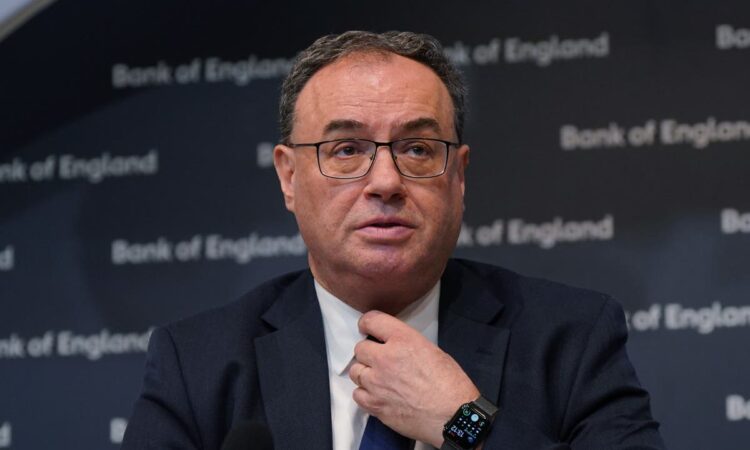
The Bank of England’s forecasting model has become “unworkable” during Britain’s current inflation crisis, its chief economist has admitted.
Huw Pill conceded that the central bank’s model had produced misleading forecasts which failed to assess the ongoing impacts of the Ukraine war on prices and wages.
Speaking at the ECB forum on Wednesday, Mr Pill said the Bank used a model “based on last quarter century” when inflation expectations “were well anchored and there was little evidence of persistence”.
The Bank of England has come in for fierce criticism from Tory MPs, who have accused governor Andrew Bailey and his team of being “asleep at the wheel” as inflation crept up in recent years.
The Bank announced an external review of its own forecasting after it hiking interest rates to a 15-year high of 5 per cent last week – having repeatedly failed to accurately predict stubbornly-persistent inflation.
Mr Pill told the forum that the Bank had not failed to adjust to the Russian invasion of Ukraine, but had failed to anticipate “how that shock is going to propagate”.
He explained that model used by officials downplayed the combined effects of high energy prices pushing up prices and wages during a period of labour shortages.
“As inflation moves away from target, the everything-else-equal assumption that allows us to break down the contributions to the drivers of inflation in a linear way tends to become unworkable,” the chief economist said.
“The likelihood of second-round effects is much stronger when there is a tight labour market. The impact of the shocks is not additive to one another but has an important multiplicative moment.”
Bank’s economist Huw Pill says model became ‘unworkable’
(Bloomberg via Getty Images)
Senior Tory MP John Redwood told The Independent that the Bank had got things badly wrong. “I’ve always thought their forecasts were out. I’m glad they’re going to review things because their model needs to be changed.”
He added: “They should be asking themselves difficult questions on why Japan, China and others have 2 per cent or less inflation.”
Senior Tories have continued their war of words with the Bank for failing to tame persistent inflation, with Jacob Rees-Mogg calling Mr Bailey “chief ostrich” with his head in the sand.
Sunak and Hunt under pressure to halve inflation as promised
(Downing Street)
Sir Jake Berry – appointed Tory chairman by Liz Truss and was previously a defender of her failed economic plans – said at the weekend that “maybe it’s time to look for someone else who’s got a better plan”.
However, Rishi Sunak offered personal support for Mr Bailey for the first time on Sunday, praising his “track record” and insisting that there was “no alternative” to the Bank’s approach to bringing down inflation.
Mr Sunak faced calls to trigger a general election if he fails to hit his inflation reduction target at PMQs. He was described in the Commons by Labour MP Chris Bryant as “literally the worst person” to be leading the country through a cost of living crisis because he “created it”.
The PM said chancellor Jeremy Hunt’s meeting with economic regulators on Wednesday was aimed at helping “ensure fairness of pricing” and pointed out that the IMF has “strongly endorsed” the government’s plans to reduce inflation.
Meanwhile, Mr Bailey told the European Central Bank forum on Wednesday that higher-than-expected inflation figures o 8.7 per cent had forced the bank to hike interest rates by 0.5 per cent.
“The cumulative data both particularly on the labour market, and on the inflation release, to us showed clear signs of persistence (and) caused us to conclude that we had to make really quite a strong move at that point. It was justified,” he said.





